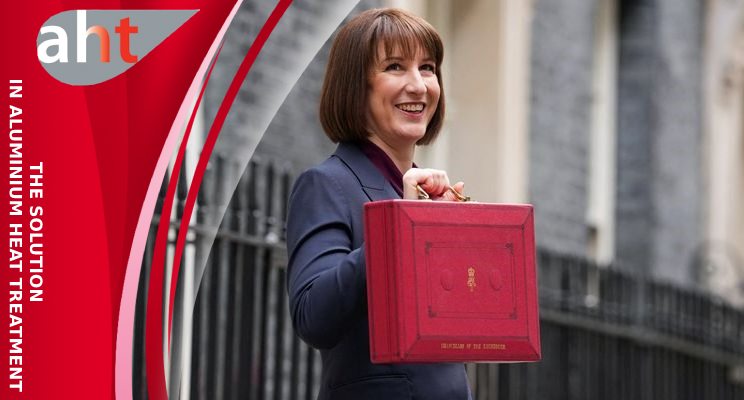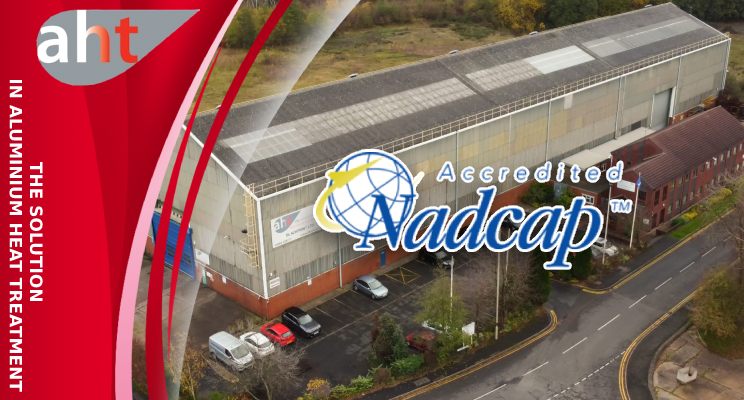Spring Statement 2025: What It Means for the Aluminium Heat Treatment Sector
The Chancellor, Rachel Reeves, has delivered the Spring Statement 2025, outlining economic measures designed to strengthen UK industry, boost investment, and support manufacturing. As a key service provider in the aluminium supply chain, Alloy Heat Treatment has reviewed the announcements with a focus on their impact on our sector, particularly in aerospace, engineering, and automotive manufacturing.
Spring Statement Aluminium Industry: Energy Costs and Industry Support
One of the most notable announcements is the exemption of the Climate Change Levy (CCL) for electricity used in electrolytic hydrogen production. While this is a positive step for very important decarbonisation efforts, it does little to address the energy challenges faced by energy-intensive businesses like ours. The aluminium industry as a whole, including heat treatment operators, continues to grapple with high energy costs, and we echo calls for similar relief measures to be extended to aluminium processing and heat treatment operations. Reducing energy costs is essential for maintaining competitiveness and ensuring the UK remains a viable location for advanced manufacturing.
Expansion of the National Wealth Fund
The increase in the National Wealth Fund to £7 billion presents potential opportunities for businesses in the aluminium sector, particularly those investing in sustainable manufacturing, recycling, and low-carbon production. For companies like ours, which provide specialist heat treatment services critical to aluminium component performance, access to investment in greener processing methods are a welcome development. However, there is still a lack of clarity on how businesses like ours can directly benefit from these funds, and we encourage further engagement with industry stakeholders to ensure fair access.
Advanced Manufacturing Plan
The government’s commitment of £4.5 billion to advanced manufacturing, with significant funding for automotive and aerospace, is a positive step. Aluminium remains a key material in these industries, and heat treatment plays a crucial role in ensuring the durability and performance of aluminium components. While these investments indicate government support for the wider manufacturing supply chain, there must be greater recognition of the role specialist providers like us play in delivering high-quality, high-performance materials to sectors like automotive, motorsport and aerospace.
Industrial Strategy Advisory Council
The formation of an Industrial Strategy Advisory Council is an encouraging move, providing an opportunity for long-term strategic planning in UK manufacturing. However, we urge policymakers to recognise aluminium’s role as a strategic material and to ensure that downstream service providers, such as heat treatment specialists, are considered when shaping policy. Investment in skills, training, and process innovation will be essential to maintaining the UK’s global competitiveness.
Defence Innovation and Growth
The announcement of new funding for defence innovation is an area of particular interest. Aluminium heat treatment is essential for high-performance defence applications, ensuring lightweight yet strong components for military aerospace and other applications. This initiative could lead to increased opportunities for businesses operating in defence supply chains, and we look forward to further details on how manufacturers and service providers can engage with these programmes.
Trade Challenges and the Importance of EU Collaboration
Global trade tensions continue to pose significant challenges for the aluminium industry, with President Trump announcing a 25% tariff on foreign imports of aluminium into the US as of March 13, 2025. This move could potentially threaten UK manufacturers that export to the US, adding pressure on supply chains and pricing. The UK government are currently engaged in dialogue with their US counterparts, hoping to strike a US-UK economic prosperity deal.
To mitigate these risks, it is crucial that the UK government strengthens trade ties with EU aluminium producers and regulatory bodies. Closer collaboration with European partners could help maintain access to critical markets, ensure compliance with emerging trade policies, and provide a united front in addressing global trade disruptions. Without coordinated strategies, UK firms may find themselves at a disadvantage, further amplifying the economic uncertainties that the aluminium sector already faces.
Economic Outlook and Business Confidence
The forecast of GDP growth and declining inflation suggests a stabilising business environment. However, ongoing global trade challenges and a very slow economic growth in the last 9 months continue to present uncertainty.
Our Perspective On The Spring Statement
While the Spring Statement signals a commitment to strengthening UK manufacturing, we believe more targeted support is needed for businesses like ours, which provide essential services within the aluminium supply chain. Specifically, we advocate for:
- Recognition of aluminium as a strategic material in UK industrial and trade policy.
- Greater access to national funding schemes for heat treatment operators and other key supply chain contributors.
- Policies ensuring fair and competitive energy pricing for energy-intensive processes.
- Continued investment in domestic recycling and circular economy initiatives to enhance supply chain sustainability.
- Stronger trade ties with EU firms to protect UK aluminium exports from increasing global tariffs.
At Alloy Heat Treatment, we remain committed to providing high-quality aluminium heat treatment services to critical UK industries. We will continue to monitor these policy developments and engage with industry stakeholders to ensure our sector’s needs are heard.









